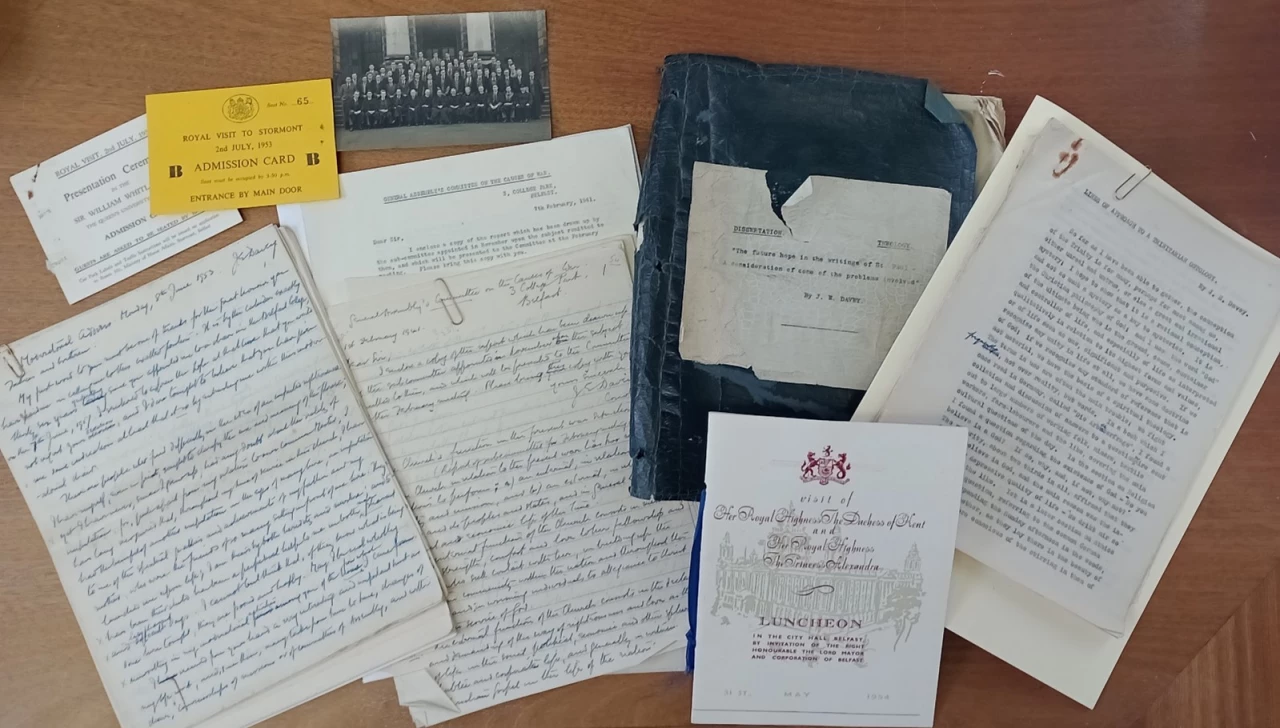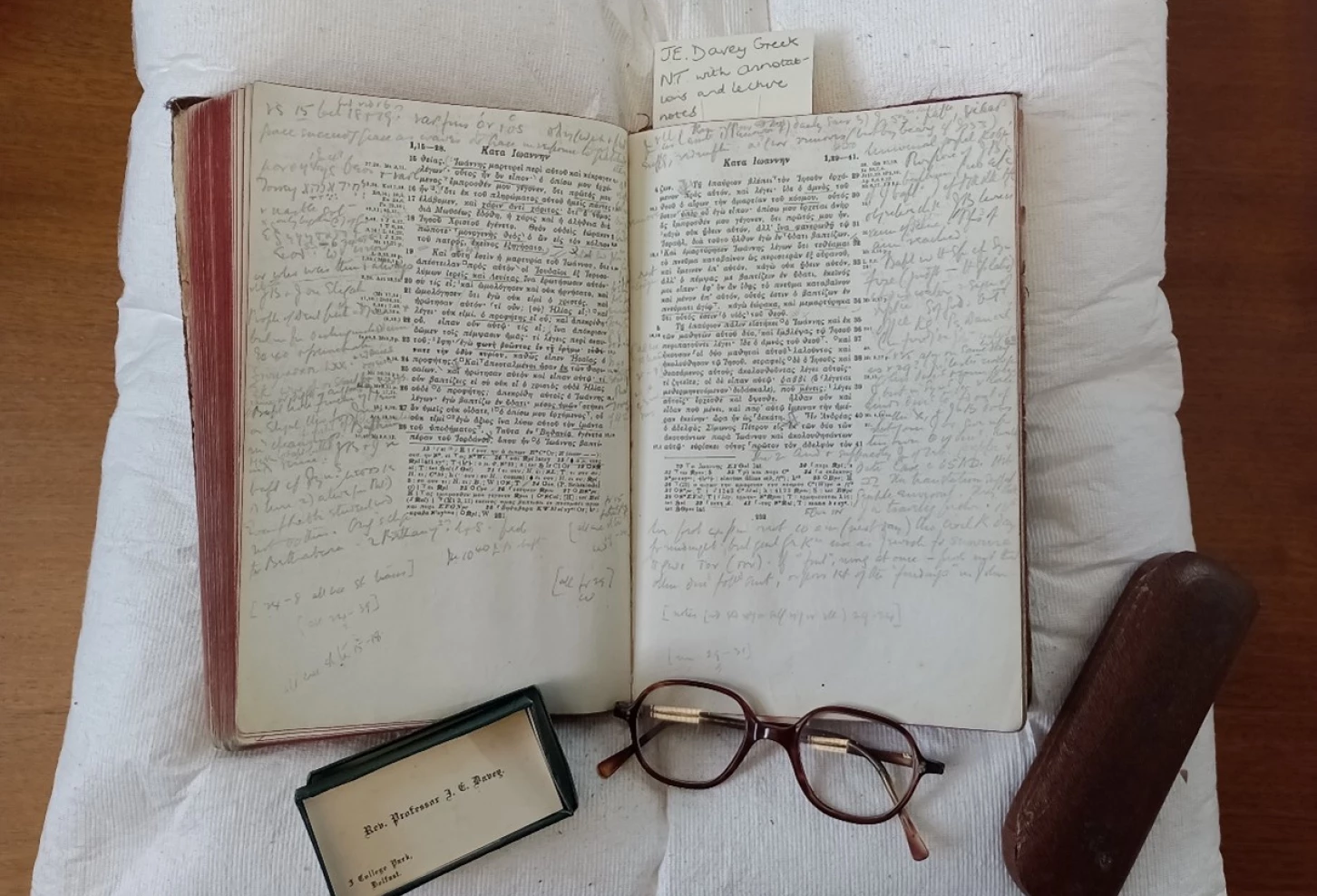Several years ago the College received papers and some personal items belonging to one of its former Principals, J. Ernest Davey. Ahead of the hundredth anniversary of the ‘Davey Trial’ we continue to work to archive, conserve, and catalogue this collection, and to promote research into Davey’s life and thought.
James Ernest Davey (1890-1960) is a notable individual in Irish Presbyterian history. An outstanding student, he graduated with a First in classics in 1912 from King’s College, Cambridge, followed by another degree in theology a year later. Davey prepared for Presbyterian ministry at Edinburgh University (1913-15), studying briefly at Heidelberg, and completing his studies at the Presbyterian College, Belfast (1915-16) where he obtained the highest marks recorded in a generation. He was appointed Fellow of King’s College, Cambridge in 1916 and was appointed to the staff of the Presbyterian College, Belfast, in September 1917. He remained there until his death, occupying the chairs of church history (1917-22), biblical literature and Hellenistic Greek (1922-30), Hebrew and Old Testament (1930-33), and New Testament language, literature, and theology (1933-60).
Davey came to prominence when he suggested that certain forms of Christian belief and practice, including some doctrines and credal statements of the Presbyterian Church in Ireland, were outdated or inadequate for contemporary needs and experience. These views disturbed some within the Presbyterian Church and prompted five charges of heresy to be laid against Davey in 1926, primarily by Rev James Hunter and W.J. Grier, a young licentiate. The Presbyterian Bible Standards League published the charges. Davey was tried before the Belfast Presbytery from February to March 1927. Hunter and Grier appealed to the General Assembly of the Presbyterian Church in Ireland in June 1927. Ultimately Davey was acquitted on every count by overwhelming majorities. Hunter and Grier formed the Irish Evangelical Church, which is today known as the Evangelical Presbyterian Church.
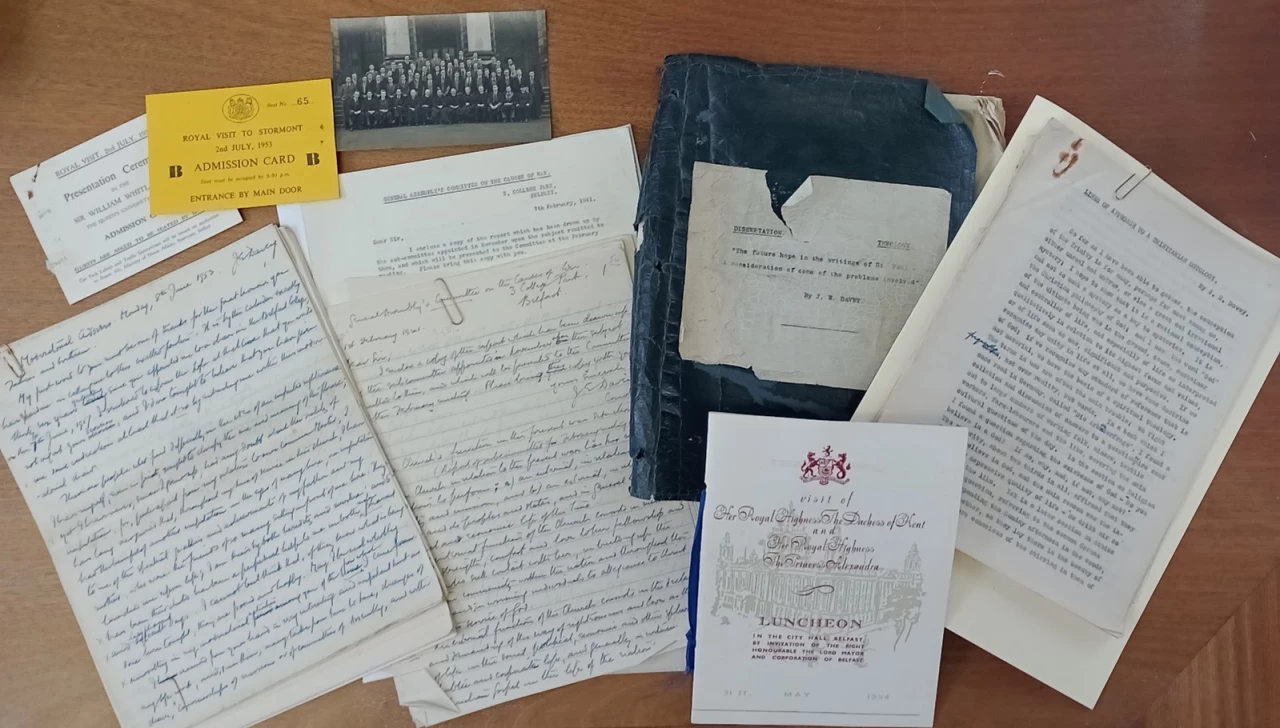
Some of Davey’s works including his handwritten Moderatorial address (1953), a draft report to the General Assembly on the causes of War (1941), his dissertation ‘The future hope in the writings of St Paul’, and ‘Lines of approach to a Trinitarian Ontology.’ Also pictured are admission cards to events celebrating the coronation of Queen Elizabeth II, visits of other royals, and a postcard of the College year group while Davey was Principal.
After the trial Davey went on to have an exceptional career. More than just a controversial theologian, he was arguably the most influential minister in his denomination, convening several of its key committees. These, including the Committee on the Causes of War, the wartime Committee on the Interpretation of the Church’s Task in the Present Crisis, and the post-war Committee on National and International Problems, shaped the denomination’s thinking on a range of contemporary questions. Davey was elected Principal of the College in 1942 and Moderator of the General Assembly in 1953-4. He was awarded honorary DD degrees by the universities of St Andrews, Edinburgh, Belfast, and Dublin. He published five books, numerous articles, popular and academic in nature, and contributed to several BBC broadcasts. Davey was also a talented musician.
Davey is a key figure in Irish Presbyterianism who served and shaped the church for over 40 years. In 2024, a licentiate of the Presbyterian Church in Ireland, Dr Matthew Houston, published an article in the Journal of Religious History exploring Davey’s role in Irish Presbyterianism and British Christianity between 1938 and 1947 (https://doi.org/10.1111/1467-9809.13124). The article and Davey’s career itself make clear that his life, thought, and legacy merit further research.
By Joy Conkey (Librarian), Principal Michael McClenahan, and Dr Matthew Houston
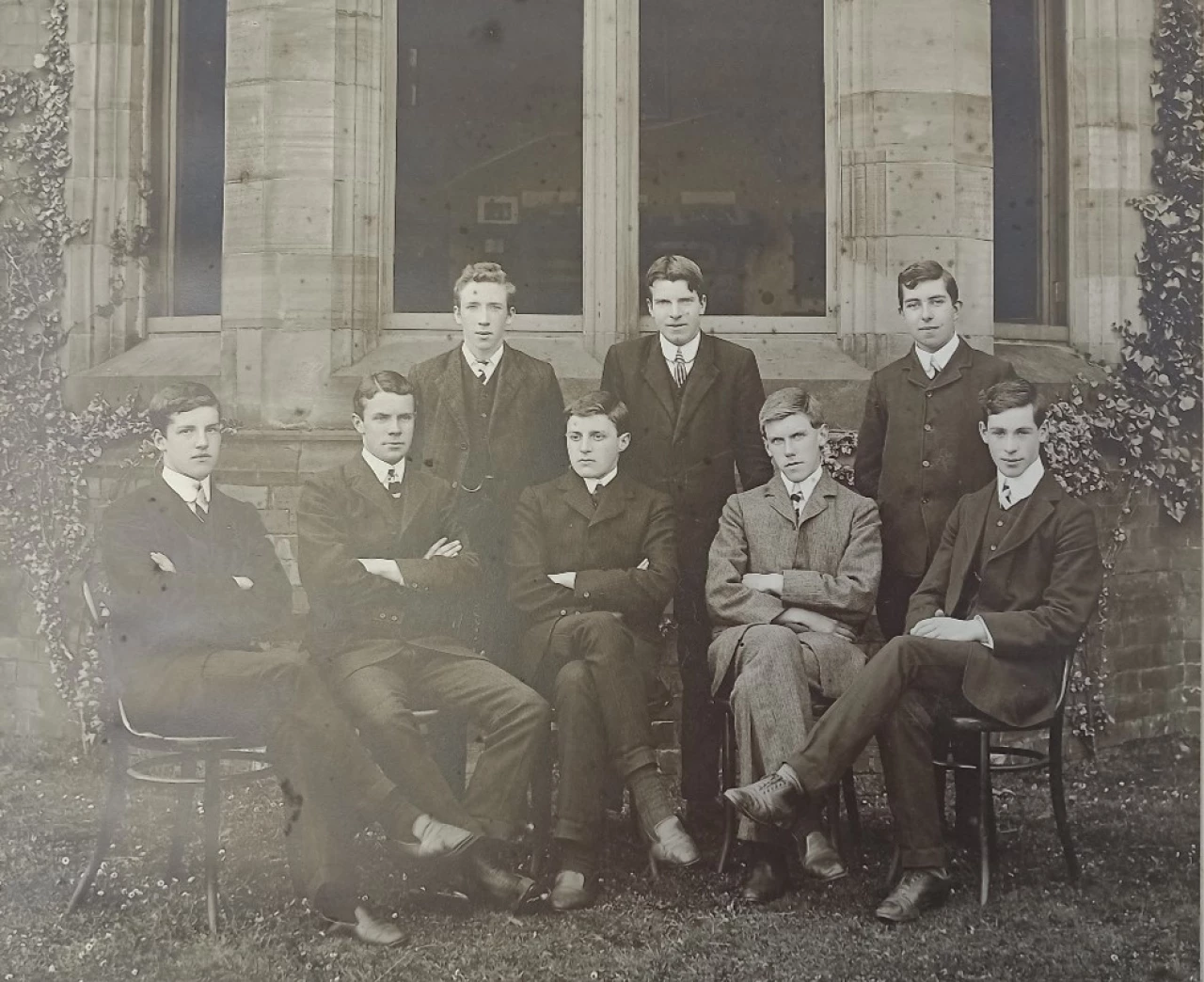
Davey at Campbell College – right, standing.
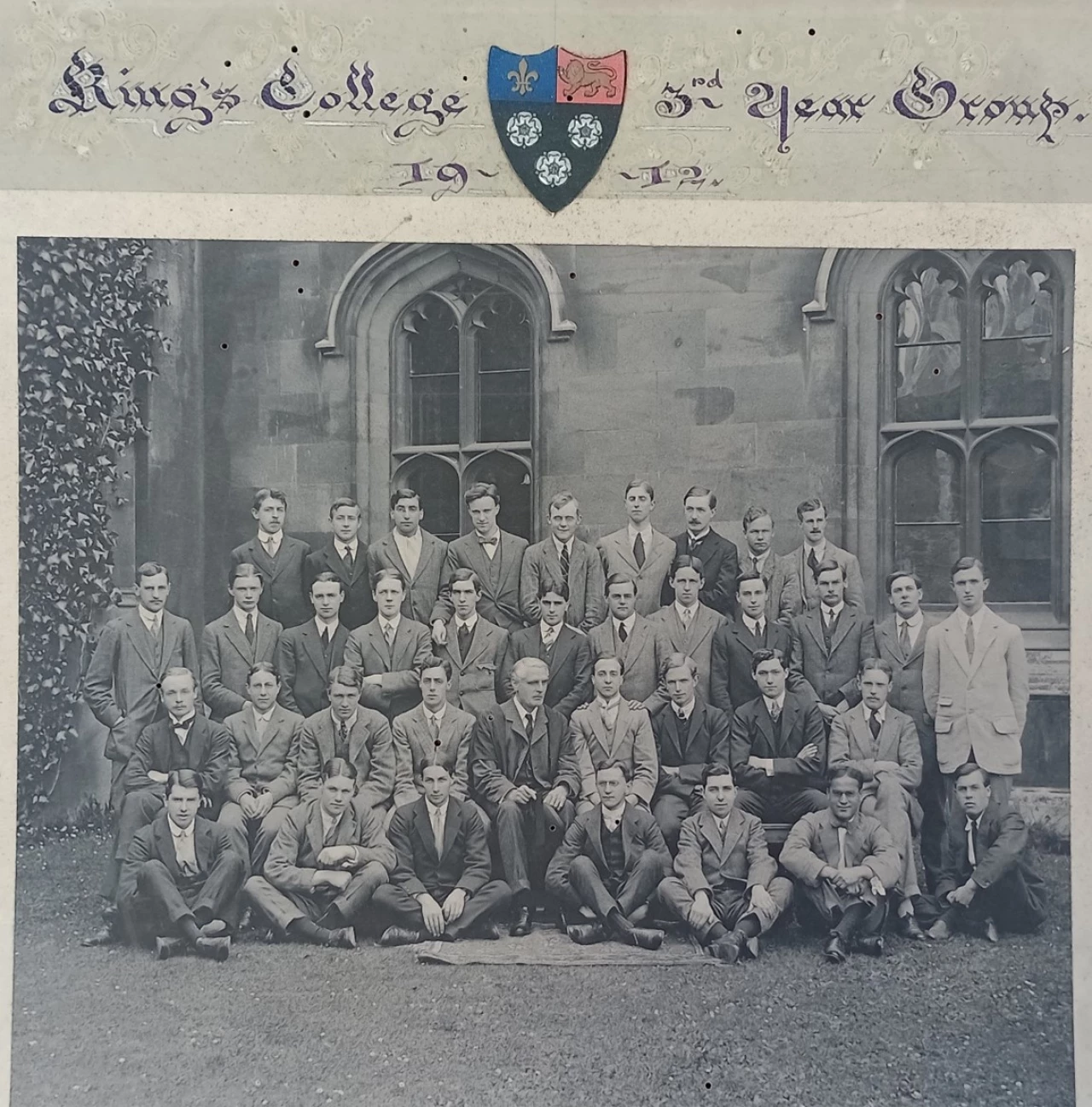
Davey at King’s College, Cambridge, in 1912 – seated in the front row, third from right.
